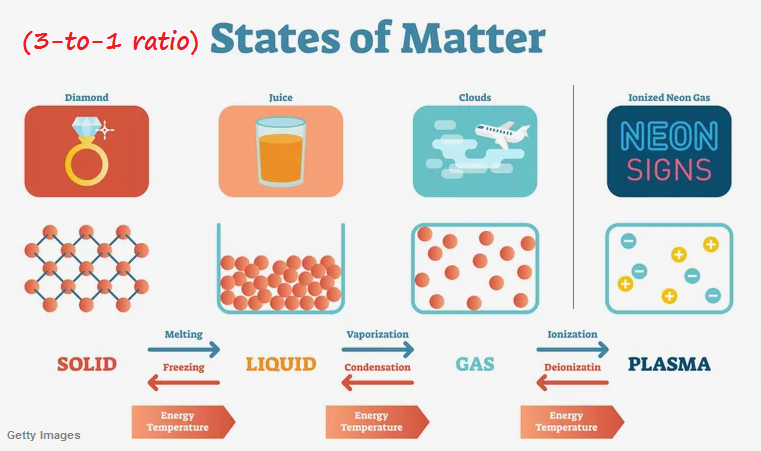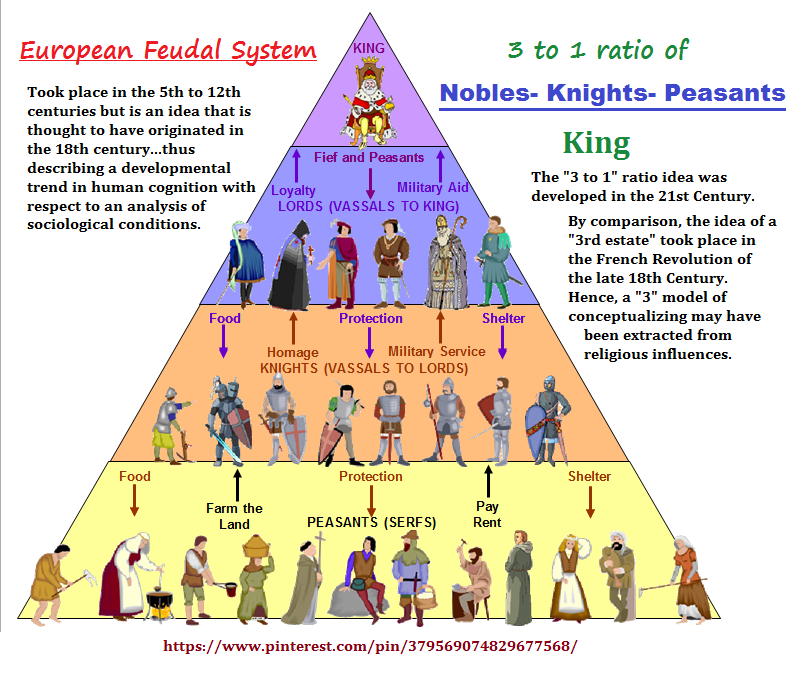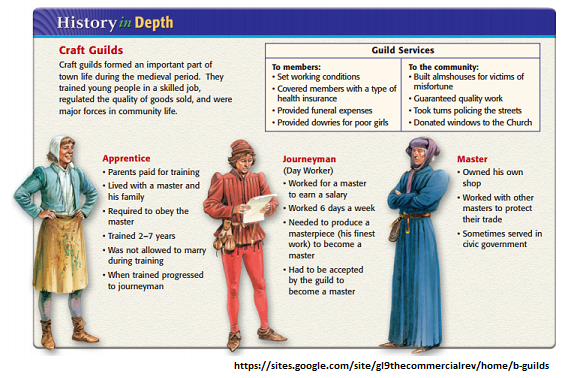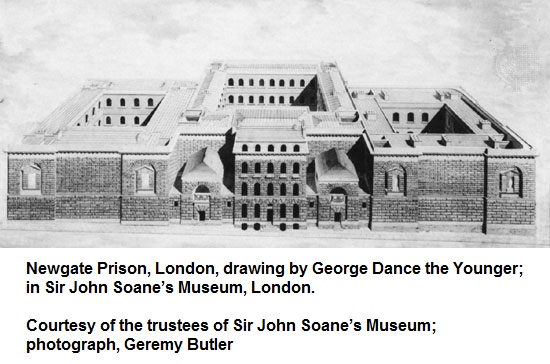page 3
~ The Study of Threes ~
http://threesology.org

Visitors as of 1st Feb 2020
| Preface page 1 | Preface page 2 | Preface page 3 |
| Preface page 1b | Preface page 2b | Preface page 3b |
| Preface page 1 | Preface page 2 | Preface page 3 |
| Preface page 1b | Preface page 2b | Preface page 3b |
| ANC Prologue Page 1 |
ANC Prologue Page 2 |
ANC Prologue Page 3 |
| ANC Prologue Page 1b |
ANC Prologue Page 2b |
ANC Prologue Page 3b |
| Communism and Societal Collapse |
| ANC Epilogue Page 1 |
ANC Epilogue Page 2 |
ANC Epilogue Page 3 |
Let me cite three relevancies for the forthcoming discussion:
- The Marxist/Engles' formula of Socialism labeled as Communism is very much a part of the primitive history to which the word "Tribal community" is referenced as an early progenitor of later Communist doctrine.
- The Marxist/Engles' formula of Communism is not reflective enough of itself to recognize its place as part of the primivity to which it assigns other socio-political doctrines.
- The Marxist/Engles' formula of Communist stages (or phases) appends to itself the entitlement of a fanatically-branded conclusion based on a fairy-tale oriented disposition as a response to the harsh reality under which Marx struggled to survive in, and in fact it is little more than an embellished artefact of a poorly stated dialectic.
The dialectic can be approximated thusly:
- Democracy is a rebellious expression attempting to conceal its roots in the crude beginnings of a primitive Communism undergoing growth.
- Socialism is an attempted refinement of the Democratic assertion by attaching economically-driven gaudy notions of civility to social efforts seeking some happy medium... some equilibrium never to be achieved.
- Communism is thus to be concluded as the inevitable result which defines what human civilization can be, will be and is.
This, in a nutshell, is the logic of present Communism which is often displayed as some sort of metamorphosis-undergoing-transformation, yet does not include itself in the transformative process. It is viewed as the ultimate achievement to be realized by its advocates and adherents according to some inculcated sense of a "pure" Communism... a pure purpose, a pure fate, as if it were a type of super-ideology, like the coined "superman" attribute journalistically attached to the Nazi and other Militant wielding social machines before and after the era of Marx and Engles. For all that is presently known, since humans routinely are not that perceptive of themselves in any historical context, the fact that so many ideologies boasting some superiority during or after their ascent came into fashion during such a short period of time that we alternatively label as a progressive era of realization, thought or consideration, we should likewise consider such ideas as expressions of a possible disease, just as we might consider the increased interest in such things as the LGBTQ orientation, anti-vaccination, anti-abortion, global warming deniers, etc., as products that might otherwise be viewed as diseases precipitated by increased temperatures.
If we pursue the analogy of using the word "metamorphosis" with Communism and other socio-political ideologies which includes religion and other philosophical narratives since all of them deal with a social orientation of the 'self' as a separate entity or with others and invariably involve discussions about labor, valuation, productivity, etc, as might an economist trying to maximize resources to reap the greater reward; it is of need for the reader to at least have some familiarity with the idea of metamorphosis as it is applied to the life cycle of an insect; whether or not a metaphorical extrapolation is going to be made with the assumed life cycle of political ideologies in a development phases or stages platform expressed by Communist ideology from the primitive to some more advanced socio-politico-economic practice.
Three types of Metamorphosis; 4-H Entomology
- Complete metamorphosis ("holometaboly"): 4 stages- egg, larva, pupa, adult. Larvae and adults look very different and may have different feeding behavior. Pupae do not feed and are usually rather inactive. Examples: beetles, butterflies, flies, wasps
- Incomplete (simple or gradual) metamorphosis ("hemimetaboly"): 3 stages- egg, nymph, adult. Nymphs of aquatic insects are sometimes called naiads. Examples: dragonflies, grasshoppers, cockroaches, mayflies, stoneflies
- Little or No metamorphosis ("ametaboly"): 3 stages- egg, young, adult. The main difference between the young and the adult is size. Adults are never winged. Examples: bristletails, silverfish

If instead of "stages" we use the word "phases", we might want to choose a model such as describing the 3 + 1 phases of matter solid- liquid- gas→ plasma; and to which we note the existence of a Triple point (sometimes referred to as the gas–liquid–solid triple point) in which the three states of matter co-exist in an equilibrium.

Alternatively, we can use the ideas of levels, degrees, steps, rungs, etc., all referencing some position. The point to be made is that though we of the present have a variety of alternatives to choose from, we can not be certain that other than a human-centered one was Marx and Engle's aware of, since both of the foregoing examples did not exist as a commonality of expressed consideration in Marx's time period, although the concept of a 3-step Feudal system was:

We might also cite the 3 stages of the guild system which had a novice/beginner- journeyman- master system of levels, that today reflect an inclination to view things in a calculus sort of infinitesimal way, whereby additional gradations of learning and experience are acknowledged (due to an increase in population and a means to make more money off of individuals who must pay for more training levels); like novice, apprentice, journeyman, expert, master.

Then again, many decades ago with I worked as a sack boy in a grocery store the hierarchy was sackboys- checkers- managers, with a third man- assistant manager- manager arrangement. (As a "sack boy", I used to put groceries into burlap/guney/potato sacks, and then we were told to use boxes because there was no box bailing machines at the time nor box/paper recycling available, and then along came paper bags; and nowadays we see a widespread usage of plastic bags which are being removed from some stores (such as Santa Fe and Albuquerque, New Mexico) and the cost of packaging one's groceries has been flip-flopped onto the consumer who is either required to bring their own packaging materials or purchase a reusable one from the store. The argument that the disallowance for using plastic bags so as to "save" the environment, though the usage of such was created as a good idea by businesses which touted the convenience of the plastic bag but was actually just another ploy to save them money... but these same companies are now using the widespread interest in the environment to exact yet more nickels and dimes from the consumer with their attitude of taking advantage of the situation and convincing the consumer it is a good idea for them to pay for their own bags, particularly if the purchase is made in the store which is advocating a change in consumer attitude. There is no telling where this might lead to in the future. Perhaps we will even have to drive to distribution centers hundreds of miles away in order to protect the environment for some other reason.)
Indeed, the "dark" or gloominess of the current social mood because of uncertainty, coupled by increased forest fires, rising tides, tumultuous weather conditions, a dumbing down of educational standards whereby mediocrity is celebrated, etc., all contribute to conditions making diseases of the mind more viable. Current Communist ideology is one of these mental diseases. It is an aberration of logic designed by those afflicted by conditions in an era which fashioned, for them, a means of coping. It is a method by which others have come to adopt as a rationality they have not the intellectual capacity to look beyond. Those advocating present forms of Communism are like children still interested in playing the mental games of children. And like many a mental disease, such ideologies can be very persuasive to the vulnerable mind... only because they are being provided alternatives which do not offer the semblance of a way out of the present predicaments. Socio-political theories being presented as alternatives to Communism do not readily appeal to those who are prone to radicalization. That is, the radicalization akin to impulsiveness and idealization to achieve some greater ideal that does not require them to venture too far from their current social domain. Like peasants inhabiting a given social sphere, those finding an interest in common Communism, common Socialism and common Democracy, apply their variants of interpretation to their respective surroundings, or the larger world-view as defined by the language most often used in their social domain of wandering. And yet, their wandering has led them here:
As with any "New" doctrine intended to be provided for both private and public consumption, the table must be set with three utensils such as a knife-fork-spoon, along with a plate, bowl and cup; as well as being referenced as one of the three traditional meals of the day, which are very often linked with social behaviors such as a break from the night long fasting (breakfast), the noon or lunch meal, and the once observed light supper... though many now over-indulge how much is consumed at this time, leading to eventual health concerns. Marx was a pseudo-intellectual at best. His ideas of assessing value for a given labor have proven to be problematic for economists in the present era. And his idea that the worker has been duped into his station in life by a social leadership says noting about the duping which his own ideas have promulgated amongst millions. But it is to be expected during an enduring epoch in which the human animal persists in believing in so very many idiotic religious ideologies.
For some reason or another, the human brain will not mature. It is stuck in a cycle that causes so much pain and anguish from one generation to the next. Yet, let us be honest in saying that Marx and his ideas are not dead. They resurface many times to be considered and re-considered, though not often taken as seriously as some who can not see past his grip on them. Communists as other socio-political-business and religious ideologies are different gangs of thieves wanting to still you mind, your emotions and whatever resource you have, in order to fulfill the ulterior motives of those currently in charge of a given gang. It is unfortunate that in the examination and/or reexamination, Marx's ideology is not used as a stepping stone, as an unrealized stage or phase in promoting the development of a social schema to bring about greater fulfillment of humanity, even if the humanity of the future will be nothing like it is today. While the Chinese have an inclination of living their lives by taking "the longer view," the expression does not actually equate with a respective philosophy of doing so. It plays out like a variation of Communism and other fairy tales, such as is described by the child's enigmatic remark of "just you wait and see". You are never told how long you have to wait nor what you should be looking for, since both are expressions which leave an open-ended accountability as one sees fit to arbitrarily define.
With the present ideological proposal viewed as a different type of meal, it is of need to present material by which some old habits of thinking can be removed, that is if the New idea is to be contrasted with an old one; as one might contrast eating off the floor like an animal and eating off of a plate while sitting at a table observing hygiene and at least some modicum of rudimentary manners. It is the price one is asked to pay for the present labor. This is not to be a parking lot or roadside food truck that charges exceptionally high prices for goods packaged to try to take advantage of a person's break at work, school or drive-by outing. While some may come to view the cost of indulgence as an extravagance they are unwilling to append a justification for to be used as an "app" (application) in their socio-political interests, others will find it to be a I-can't-live-without-it commodity. Hence, such a reflection astutely recognizes that yet another dichotomy is born. Necessarily so, old ideas are very often linked to old behaviors, though ideas are generally described as an "attitude" and not as one views other behaviors such as an external body movement.
It should be understood, if not already realized, that I have never been a Marxist. The Communist Manifesto was viewed as having been written by an idiot. I could not and can not fathom how anyone can find Marx and Engles' ideas make any sense in terms of developing into the conclusions which were reached. I concluded that Communism was derived by a path succumbing to desperation. An acknowledgment that some pressing issue demanded that a stand be made and a stand that needed to be recorded so that like-minded people could find comfort and direction with the same lunacy as Marx and Engles subscribed to. Then again, I few present practices of Democracy as being just as silly and idiotic as current practices of Communism and Socialism, thus making each of them related by some rarely acknowledged kinship... like the same father but different mothers or the same mother but different fathers, unless the imagery of incest and adultery are more fitting under certain situations of interpretation. No less, religious ideologies are viewed as little more than variations of the same mental illness that humanity continues to suffer from and for which no one has yet found a cure for. However, let me also note it is rather astonishing how many converts away from Marxist doctrine do so by referencing some religious attachment... or at least reference, as if their is some inter-connective link between the mental functioning of those in a religious cult-ure and those in a Communist cult-ture. Both require a cult-like orientation.
For some, the presentation will be a "re-habilitation" because they have become entrenched in their intellectual ways, while for others it will be a first habilitation, because their mind is malleable and has not succumbed to the rigidity so often viewed in so many academic training programs, despite the claims for encouraging free and creative thought. The ideas of "Re-habilitation" and "Habilitation" are distinctions that should be made in conjunction with their supplemental attributes known as "Correction" and "Direction," that is if you haven't already done so. The following lineup is a generalized abbreviation of each term:
- Re-habilitate: To correct a perceived mistake.
- Habilitate: To give direction to.
- Correction: To restore to a desired quality.
- Direction: To guide along a desired path.
The term "re-habilitation" refers to the old idea that it was prudent to incarcerate socially misbehaving individuals so that they might become "penitent" (in a religious sense), whereby their place of presumed "re-habilitating penitence" was called a "penitentiary" and the individuals who were locked up were naively thought to undergo some miraculous transformation of mind, body and spirit as if they were all studious and reflective monks who would somehow come to their senses and be struck by some awe-inspiring illumination to see the error of their ways and get back onto the straight and narrow path of being "good citizens" who were mostly functionally illiterate and although they may grumble in silence and secrecy, generally went along being an indentured servant to the ruling elite and did not take it upon themselves to commit crimes against their "betters" or innocent other in order to improve their own lot, though merchants and clergy working hand in hand with political figures were enabled to rig the system as they saw fit to help a few take advantage of the many who generally "live silent lives of desperation" to improve their own circumstances. (Henry David Thoreau famously stated in Walden that "the mass of men lead lives of quiet desperation"; What is called resignation is confirmed desperation.; Henry David Thoreau)
The problem with this presumed logic of incarcerating someone so as to instigate a reflective mood of penitence, as with the current presumptive logic of Communists (and other ideologies), is that most people who enter into the chambers of Communism are neither studious... they are followers (student followers), and neither have they been habilitated in the first place (typically they are young and idealistic who mean well, but very often seeking the same brain as the Tin Man in the Wizard of Oz). In other words, the idea of "re-habilitation" is pretty stupid because many prisoners have not really been habilitated (enfranchised) into society in the first place. The education the people are being subjected to is primarily that sanctioned by one another government sponsorship, which is an ideology that typically represents bits and pieces of a lot of nonsense that you are expected to go along with anyway... just as like the primitive notions of present Communism does. In a metaphorical sense, Marx and Engles were acting like a dogmatically driven government expecting others to intellectually jump through a set of hoops by being subjected to a whip, fire, and a pistol... though people came to be subjected to much worse through adulterations configured by personal prejudices, antagonisms and ulterior motives.
Since I am using the analogy of a prison setting to represent the mindset of those engaged in an entrenched usage of Communist ideology from which they must be re-habilitated, a short historical refresher on the subject culled from the Britannica may be of some service to a few readers unfamiliar with the subject in its historical context, thus at the same time helping to establish the connection with other historical events that have laid the groundwork for social reform, just as the mentality of Marx and Engles is similarly instructive, if one would broaden their appreciation of the larger social matters to which they can be applied. In other words, the disposition of the prison systems influential to the ideas of Marx and Engles as well as their contemporaries is not a topic typically discussed in and of themselves, nor as a metaphor for the mental orientation exhibited in the Communist ideology, though references to Marx's atheism is sometimes mentioned. However, when Marxist doctrine is applied to the study of criminology, we find the following statement signifying that Marxist doctrine endures with a beating heart, though some might argue with a bleating one, because Communism in terms of a Marxist orientation needs to be sacrificed to the gods of antiquity and relegated to the position of being a glass case relic of cultural anthropology:
Under this system, Marxist criminologists argue that the laws and legal system are designed to maintain capitalism by keeping the proletariat in a state of poverty and powerlessness through the enforcement of the laws created by those in power (Vago, 2009). Marxism is Alive and Well in our Prison System by Dr. Vincent Giordano, Program Director, Criminal Justice at American Public University
While on the one hand the comment is true, on the other we must ask if whether in reversed roles; such that those who are locked up were enabled to create a system with themselves as the primary beneficiaries; would they exhibit a greater wisdom and create a better system or one that is much worse? Or would they too become victims of yet another elitist social structure and surrender themselves to some form of domination? Instead of having a three-tiered Prison Administration- Prison guards- Prisoners formula of upper class- middle class- lower class, Criminals would become a new Middle class or rivalrous upper class that devises a two-class system instead?
In presenting a case for extinguishing the Old Communisms (Marxist/Engelsism, along with Leninism, Stalinism, Castroism, Maoism, etc...) with a new model, it is of need for a researcher to view the development of an ideology in its respective cultural context. While the context in the Marx/Engles case can be viewed as being quite broad, we do not actually know if the World-view of Marx was constrained by a selective set of influences as one might think occurs with a scholar who spends hours, days and weeks locked away in some dim-lit chamber filled with several or just a few reading materials. Generally, we are inclined to consider that a person's influences are multiple and thus quite broad, thus leading us to assume we could take into consideration multiple topics of cultural orientation (such as a development in medicine, music, military armaments/strategy, culinary interests, clothing/hygiene styles, child rearing attitudes, public education, homelessness, health care, etc...).
However, let me be honest in saying that I am initially focusing on the prison setting as a short analogy, simply because that is what "popped" into my mind while writing, not to mention I spent a short time (decades ago, along with an interest in criminology) working in an adult prison as well as a lockup facility for youth offenders, some of whom were there because of age-related ("status") offenses. Hence, when speaking of the prison system as a means of identifying a larger context of sociological thinking during Marx's era in which his ideas were being formulated, the upcoming excerpt can be instructively appreciated, when we note that the mentality of the police force(s) influenced the role in which prisons played and still play out into the modern era not only in Germany but elsewhere. In short, prisons are primarily seen as instruments "for the good of the state (erroneously defined in a larger context as the "public" or the public would have the ability to construct laws according to their collective mindset), and are not built nor administratively run for the good of the prisoners... in terms of rehabilitation or habilitation. (Note, as a reminder, Timeline of Karl Marx was during the years of 1818 - 1883 [65 years] and the Timeline of Friedrich Engels occurred during the years of [1820 - 1895]):
...Particularly problematic is a chronology which establishes the decades around 1800 as the period which experienced the gradual replacement of dehumanizing corporal punishments, including the philosophies and the strategies behind these punishments, with the rise of confinement. Some of the studies stress that confinement was a common practice long before 1800 and that the practice and the philosophy of corporal punishment lasted far into the twentieth century. Histories of the death penalty in Germany and a comprehensive project on the German prison during the Nazi period have shown further the extent to which dehumanizing strategies persisted – strategies that aimed rather at extinguishing the criminal offender or someone defined as deviant rather than bettering him by reforming him in confinement...
...The early history of the German police has been much less explored. There is one remarkable study by Siemann (Sieman, W., Deutschlands Ruhe, Sicherheit und Ordnung. Die Anfänge der politischen Polizei 1806-1866, Tübingen, Niemeyer, 1985) that explored the beginnings of political policing during the first half of the nineteenth century. Siemann scrutinized the archival material of the various German states and of the German Federation from 1815 until the founding of the Second Reich in 1870-1871. He painstakingly reconstructed the phases and forms of the making of a modern political police in the German states. In doing so he revealed a special mode of interaction, if not of intimacy, among those police officials who were responsible for collecting and investigating evidence and for imprisoning any suspect. In his view, this small circle of men became an extralegal institution. The dynamics of their task only too easily placed their discretionary police powers beyond any limits. Interestingly enough, the Prussian authorities explicitly named this network of police officials as their model when they set out to crush the Social Democratic Party and to found a new a political police in 1878.
Crime and Criminal Justice History in Germany, A report on recent trends by Herber Reinke, Crime, History and Societies, VOL. 13, N°1; 2009
Let's take a look at the excerpt on prisons from the Britannica:
Development of the prison system
During the 16th century a number of houses of correction were established in Europe for the rehabilitation of minor offenders and vagrants; they emphasized strict discipline and hard labour. Over time, imprisonment came to be accepted as an appropriate method of punishing convicted criminals. Poor sanitation in these institutions caused widespread disease among prisoners, who were generally held unsegregated, without any consideration for gender or legal status. Outbreaks of epidemic typhus, known as "jail fever," occasionally killed not only prisoners but also jailers and (more rarely) judges and lawyers involved in trials. The modern prison developed in the late 18th century in part as a reaction to the conditions of the local jails of the time.
Newgate Prison
(1188 - 1902: 700 years!)
Bastille prison
(1357 - 1789: 400 years!)
Emergence of the penitentiary
The concept of the prison as a penitentiary (that is, as a place of punishment and personal reform) was advocated in this period by the English jurist and philosopher Jeremy Bentham, among others. The appalling conditions and official corruption in many local prisons of late 18th-century England and Wales were exposed by the English prison reformer John Howard, whose works The State of the Prisons in England and Wales (1777) and An Account of the Principal Lazarettos in Europe (1789) were based on extensive travels. The public outrage that Bentham and Howard helped generate led to a national system of inspection and the construction of "convict prisons" for those serving longer sentences. Consequently, in the early 19th century, penitentiaries were established in the U.S. states of Pennsylvania and New York.
As use of the new type of prison expanded, administrators began to experiment with new methods of prisoner rehabilitation. Solitary confinement of criminals came to be viewed as an ideal, because it was thought that solitude would help the offender to become penitent and that penitence would result in rehabilitation. In the United States the idea was first implemented at Eastern State Penitentiary in Philadelphia in 1829. Each prisoner remained in his cell or its adjoining yard, worked alone at trades such as weaving, carpentry, or shoemaking, and saw no one except the officers of the institution and an occasional visitor from outside. This method of prison management, known as the "separate system" or the "Pennsylvania system," became a model for penal institutions constructed in several other U.S. states and throughout much of Europe.
A competing philosophy of prison management, known as the "silent system" or the "Auburn system," arose at roughly the same time. Although constant silence was strictly enforced, the distinguishing feature of this system was that prisoners were permitted to work together in the daytime (at night they were confined to individual cells). Both systems held to the basic premise that contact between convicts should be prohibited in order to minimize the bad influence inmates might have on one another. Vigorous competition between supporters of the two systems followed until about 1850, by which time most U.S. states had adopted the silent system.
The concept of personal reform became increasingly important in penology, resulting in experimentation with various methods. One example was the mark system, which was developed about 1840 by Capt. Alexander Maconochie at Norfolk Island, an English penal colony east of Australia. Instead of serving fixed sentences, prisoners were required to earn credits, or "marks," in amounts proportional to the seriousness of their offenses. Credits were accumulated through good conduct, hard work, and study, and they could be withheld or subtracted for indolence or misbehaviour. Prisoners who obtained the required number of credits became eligible for release. The mark system presaged the use of indeterminate sentences, individualized treatment, and parole. Above all it emphasized training and performance, rather than solitude, as the chief mechanisms of reform.
Further refinements in the mark system were developed in the mid-19th century by Sir Walter Crofton, the director of Irish prisons. In his program, known as the Irish system, prisoners progressed through three stages of confinement before they were returned to civilian life. The first portion of the sentence was served in isolation. After that, prisoners were assigned to group work projects. Finally, for six months or more before release, the prisoners were transferred to "intermediate prisons," where they were supervised by unarmed guards and given sufficient freedom and responsibility to demonstrate their fitness for release. Release nonetheless depended upon the continued good conduct of the offender, who could be returned to prison if necessary.
Many features of the Irish system were adopted by reformatories constructed in the United States in the late 19th century for the treatment of youthful and first offenders. The leaders of the reformatory movement advocated the classification and segregation of various types of prisoners, individualized treatment emphasizing vocational education and industrial employment, indeterminate sentences and rewards for good behaviour, and parole or conditional release. The reformatory philosophy gradually permeated the entire U.S. prison system, and the American innovations, in combination with the Irish system, had great impact upon European prison practices, leading to innovations such as the Borstal system of rehabilitation for youthful offenders in the 20th century.
The purpose of imprisonment
There are a number of accepted reasons for the use of imprisonment. One approach aims to deter those who would otherwise commit crimes (general deterrence) and to make it less likely that those who serve a prison sentence will commit crimes after their release (individual deterrence). A second approach focuses on issuing punishment to, or obtaining retribution from, those who have committed serious crimes. A third approach encourages the personal reform of those who are sent to prison. Finally, in some cases it is necessary to protect the public from those who commit crimes—particularly from those who do so persistently. In individual cases, all or some of these justifications may apply. The increasing importance of the notion of reform has led some prison systems to be called correctional institutions.
This description of imprisonment applies mainly to the countries of Europe and North America. In China imprisonment was historically used as a means of reforming the minds of criminals, and it obliged prisoners to work in support of the state. Imprisonment in the Soviet Union similarly became a method of forcing so-called enemies of the state to labour on its behalf and, in so doing, to recognize the error of their ways. Developing countries faced a different challenge as they confronted prison systems that in many cases symbolized a legacy of colonial domination. Given the difficulty of replacing the structure and organization of an existing prison system, many countries consequently struggled to implement effective forms of punishment that were also decent and humane.
"prison." Encyclopædia Britannica Ultimate Reference Suite, 2013.
As with a Marxist-Communist perception of criminology (as a model of contemplation), we might want to view it in an effort to analyze Medical Care, as a final example of analogical attributions that one might cite either for or against Marxism as a valid tool. Marxism, like other current socio-political ideas, inclines one to be buried in the morass of its primivities of concern whereby a larger appreciation is difficult to discern. In other words, and simply put, it is difficult to see outside a box if one's ideology not only places one in it but wants to shut the lid to prevent any other light from shining on it. It is a mental disease that keeps one in a Communist-styled padded cell:
Abstract
Marxist studies of medical care emphasize political power and economic dominance in capitalist society. Although historically the Marxist paradigm went into eclipse during the early twentieth century, the field has developed rapidly during recent years. The health system mirrors the society's class structure through control over health institutions, stratification of health workers, and limited occupational mobility into health professions. Monopoly capital is manifest in the growth of medical centers, financial penetration by large corporations, and the "medical-industrial complex." Health policy recommendations reflect different interest groups' political and economic goals. The state's intervention in health care generally protects the capitalist economic system and the private sector. Medical ideology helps maintain class structure and patterns of domination. Comparative international research analyzes the effects of imperialism, changes under socialism, and contradictions of health reform in capitalist societies. Historical materialist epidemiology focuses on economic cycles, social stress, illness-generating conditions of work, and sexism. Health praxis, the disciplined uniting of study and action, involves advocacy of "nonreformist reforms" and concrete types of political struggle.
A Marxist view of medical care by Waitzkin H.
Yet, let us take a look at the Marx era in terms of diseases in order to get some sense of the conditions which prevailed, even though Nuremburg is the primary focus of the article:
Abstract
Before the middle of the 19th century urban life was hazardous, life expectancy in big cities was shorter than in the countryside, it was half as high as it is today. Cities used to be called "the graves of mankind"; they were unhygienic, since their inhabitants lived under crowded, unhealthy conditions. In German cities infant mortality was extremely high, one out of three new-born children died within its first year. In most big cities more people died in any given year than were born. In 1806, when the Imperial City of Nuremberg was absorbed by the Kingdom of Bavaria, it had 25 000 inhabitants, fewer than around the year 1600. In the following decades Nuremberg grew quickly, up to 50000 in 1846 and 100000 in 1881, 330000 in 1910. Its population was living extremely crowded within the medieval city-walls, up to 58 000 (1885) in the old parts of the city, more than twice as many as in 1806. Mortality was bound to increase, as more and more people moved to Nuremberg. Mortality rose from 25.5 per thousand in the 1820's to 29.4 in the 1850's and 32.8 in the 1860's. This increase of population was mainly due to migration from outside, from the countryside.
New industries settled down in Nuremberg and provided new jobs, the new factories produced lots of smoke and dangerous dust. The general living conditions of the workers were poor, people were much smaller than nowadays. During the industrialization labor was backbreaking, working hours were extremely long, and annual working hours were more than twice as long as today. New and better legislation was written by the Northern German Confederation, founded in 1867. Now the magistrate of Nuremberg recognised that something had to be done. In the following years physicians began to collect information as to morbidity and mortality in various parts of Nuremberg. Very many people still died of infectious diseases, esp. of tuberculosis, typhoid fever, diphtheria, pertussis, scarlet fever and other infectious diseases. There were many cases of bronchitis and deadly pneumonia. Even suicide was an important cause of death. In 1886 mortality at Nuremberg peaked for the last time above 30. Nuremberg had fewer doctors than other big cities in Germany. The city-fathers noticed that the public wells and the drinking water were dirty--they were getting more and more contaminated as time went by. It proved extremely difficult to provide this fast growing population with "free goods" like clean water and air.
In the 1870's Nuremberg began to build a new water supply and a modern municipal sewer system. Cases of typhoid fever declined quickly thereafter. The magistrate did not provide new apartment-houses, but it took care that the new houses were more hygienic, with toilets and other necessary facilities. After 1880 new vaccinations were developed by modern medicine, these and other methods of preventive medicine proved to be more important for prolonging human lifes than therapeutic medicine. In the 1880's a steep rise of income can be registered, it brought more and better food, more meat, and better living and working conditions--and fewer working-hours per year. At the eve of World War I, Nuremberg was one of the ten or twelve biggest cities in Germany, an industrialized city with a hard-working population, people with little education and income. Urban mortality in Nuremberg declined rather slowly. In 1867 35.7 percent of all deceased persons were infants, less than one year old, in 1913 that percentage had declined to 30.7. In 1867 only 9.3 per cent of the deceased were older than 70, in 1913 the elderly constituted 14.2 per cent. Very many people still died in their forties or fifties.
Mortality in Nuremberg in the 19th century (about 1800 to 1913) by Vasold M.
Date of Origination: Sunday, December 22nd, 2019... 12:28 PM
Initial Posting: Saturday, February 1st, 2020... 12:47 PM
Herb O. Buckland
herbobuckland@hotmail.com


